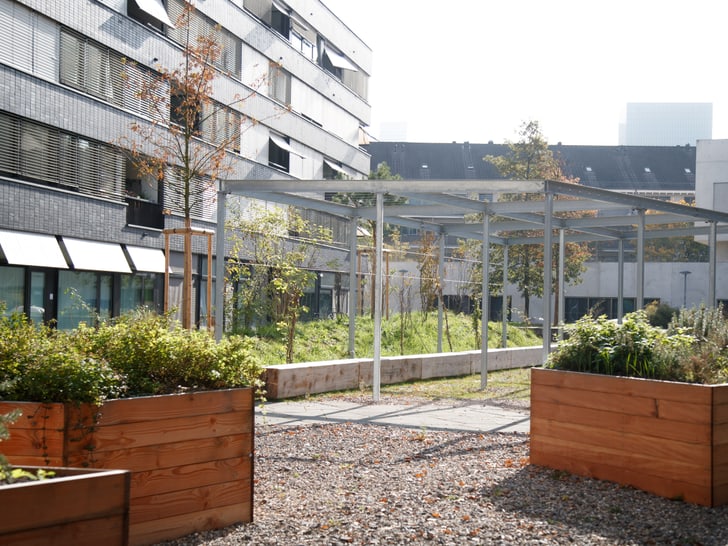We exercise our voting rights
We have been exercising our voting rights at Swiss companies since 2006. All pension funds have been required to do this since 2014. As regards firms based abroad, we focus on the 100 largest in the portfolio and those with which we are engaged in dialogue.
Exercising voting rights means voting on motions at the annual general meeting. This is done on PUBLICA’s behalf by our proxy voting agency Inrate, whose voting guideline guides our decisions. For foreign companies, we are supported by Minerva, which also uses Inrate’s voting guideline.
Equities in respect of which we exercise our voting rights are not lent out to other investors.
Engagement – conducting dialogue
In 2015, along with six other investors, we founded the Swiss Association for Responsible Investments (SVVK-ASIR). Since then, more investors have joined. SVVK-ASIR partner companies regularly review our equity and corporate bond portfolio to identify firms that commit systematic and serious breaches of the normative basis. The partner companies conduct dialogue with these firms on behalf of SVVK-ASIR members. This also covers specific issues such as climate and biodiversity.
You can read more about the focus and results of dialogue on the SVVK-ASIR website:
If a dialogue fails to progress, we support collaborative investor letters and shareholder motions or vote against individual directors. If there is no prospect of the company changing its conduct, we exclude it from the portfolio.

The normative basis means we do not define any criteria of our own for investing pension assets. Most of our active members live in Switzerland. We are therefore guided by the wishes of the Swiss electorate, expressed in the results of federal votes, procedural requests forwarded by parliament, and the Swiss Constitution. We also adhere to the international conventions ratified by Switzerland, which largely coincide with the ten principles of the UN Global Compact.
Integrating into the securities portfolio
Our second approach involves integrating responsible investment into the securities portfolio. We apply negative and positive criteria and analyse risks regularly.
Negative criteria mean that we exclude certain companies and countries from the portfolio.
Specifically, we exclude:
- manufacturers of controversial weapons (anti-personnel mines, cluster munitions and nuclear weapons),
- companies with which dialogue has been unsuccessful,
- companies that produce coal or generate electricity from coal (except those with which PUBLICA is engaging in dialogue or that have a credible coal exit plan in place), and
countries on the State Secretariat for Economic Affairs (SECO) sanctions list.
By taking account of positive criteria, we aim to divert finance flows towards responsible companies and investments. The following investments help to achieve that:
- Fixed-income investments are made in “green bonds”.
- As regards private infrastructure equity and debt, we also invest in renewable energies such as wind farms and photovoltaic installations or, in the social category, social housing and medical research centres.
As part of extended risk management, PUBLICA carries out an annual strategic risk analysis according to ESG criteria. This analysis assesses risks that could result in tangible financial losses for PUBLICA’s portfolio.
We have implemented a range of measures derived from the annual strategic risk analysis that in some cases overlap with the measures from the other responsible investment approaches:
- climate-efficient equity index
- reduction of CO₂ intensity in the corporate bonds
- exclusion of coal companies
- CO₂ reduction path for real estate
- ESG benchmarks for emerging market government bonds
- enhanced dialogue on climate and biodiversity
Integrating into Swiss real estate
Our third approach is to integrate responsible investment into the directly held real estate.
We invest part of our pension capital in real estate. Three quarters of all our properties were built after 2000. Our focus in terms of real estate is on economic and environmental sustainability. We have defined a path for reducing CO₂ emissions, which we achieve by replacing heating systems that use fossil fuels such as oil with alternatives such as district heating or heat pumps, insulating the building envelope and supporting renewable energies such as solar panels. We ensure that indigenous plants grow in the properties’ gardens and make tenants aware of the need to conserve natural resources.
Net zero: PUBLICA sets itself targets and reports on them
PUBLICA has set itself a target of net zero emissions for its portfolio by 2050 at the latest. This is in line with the Paris Agreement, which has been ratified by Switzerland.
Net zero 2050 means that from 2050 onwards, Switzerland aims to emit no more greenhouse gases into the atmosphere than can be captured and stored in natural and technological sinks.
PUBLICA has adopted the following measures to support its net zero commitment:
- climate-efficient equity index, to systematically steer climate-related opportunities and risks
- underweighting of CO₂-intensive companies compared with the benchmark in corporate bonds, in order to reduce intensity and climate risks
- ESG benchmarks for emerging market government bonds
- definition of a reduction path to cut the CO2 emissions of the directly held real estate in Switzerland
- dialogue with CO₂-intensive companies to assist them in opening up more responsible areas of business
- exclusion of coal companies
- investment in renewable energies such as wind farms and photovoltaic installations in the private markets category
It has become clear to us that companies need time to adapt their business models. Moreover, at present there are few opportunities to invest in CO₂ storage technologies.
Every year, we measure and report on our achievement of the targets in our portfolio. Our reporting is largely guided by the ESG reporting standard issued by the Swiss Pension Funds Association ASIP, and by the Swiss Climate Scores.
